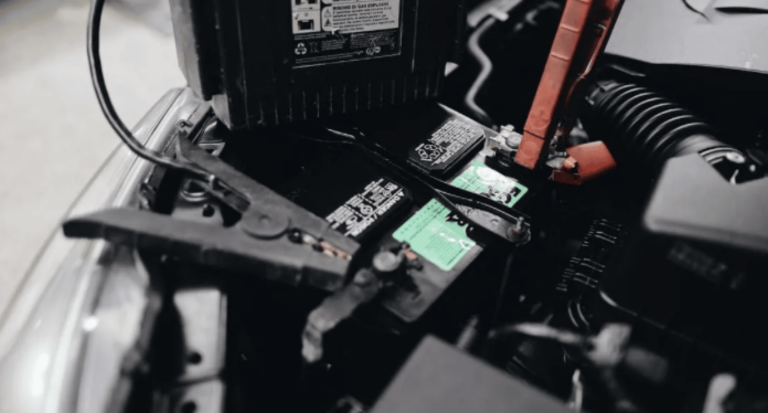September 26, 2024
Understanding Your Dashboard Warning Lights
TABLE OF CONTENTS
- Why Dashboard Warning Lights Matter
- Common Dashboard Warning Lights and Their Meanings
- What to Do When a Warning Light Comes On
- Preventive Measures for a Healthy Dashboard
- Trust Mason Automotive for Expert Guidance
OUR auto repair shOP NEAR YOU
Mason Automotive in Bloomington, IN, offers quality auto repair with a convenient location and exceptional service.
At Mason Automotive, we believe that an informed driver is a safer driver. Your vehicle’s dashboard is designed to communicate important information about your car’s performance, and understanding these signals can help you catch issues early and keep you safe on the road.
In this comprehensive guide, we’ll break down the most common dashboard warning lights, explain what they mean, and offer advice on what steps to take if one of them comes on.
Why Dashboard Warning Lights Matter
Your dashboard is like your car’s health monitor. These warning lights are not meant to alarm you but to alert you to potential issues before they escalate into more significant problems. By paying attention to these signals, you can:
- Prevent Major Damage: Early detection of a minor issue can prevent costly repairs later.
- Ensure Safety: Many warning lights are directly linked to the safe operation of your vehicle.
- Maintain Performance: Addressing issues promptly helps keep your car running efficiently.
Common Dashboard Warning Lights and Their Meanings
Check Engine Light
Often one of the first signs that something isn’t right, the check engine light can indicate a range of issues—from a loose gas cap to more complex engine or emissions problems. While it might not always mean an emergency, it’s important to have it diagnosed by a professional.
Oil Pressure Warning
This light alerts you when the engine’s oil pressure is low. Oil is crucial for lubricating your engine, and low pressure can lead to severe engine damage. If this light comes on, pull over safely and check your oil level, then contact a professional immediately.
Battery/Charging System Light
If this light illuminates, it could be a sign of issues with your vehicle’s battery or charging system. Whether it’s due to a failing battery, loose connections, or a problem with the alternator, it’s essential to have the system checked promptly to avoid getting stranded.
ABS (Anti-lock Braking System) Light
Your ABS light indicates a potential problem with your braking system. While your regular brakes may still function, a malfunction in the ABS means that your car’s ability to prevent wheel lock-up during hard braking could be compromised. This is a safety concern that requires professional attention.
Tire Pressure Monitoring System (TPMS) Light
When the TPMS light comes on, it’s alerting you that one or more of your tires is under-inflated. Proper tire pressure is crucial for safe handling, optimal fuel efficiency, and even tire wear. Regular checks and maintenance can help avoid this issue.
Brake Warning Light
Separate from the ABS light, the brake warning light may indicate issues such as low brake fluid, worn brake pads, or problems within the brake system. Ignoring this warning can lead to reduced braking efficiency and potentially dangerous situations on the road.
Temperature Warning Light
This light warns you of engine overheating. Overheating can be caused by a variety of factors including low coolant levels, a faulty radiator, or a malfunctioning thermostat. It’s important to address overheating issues immediately to prevent engine damage.

What to Do When a Warning Light Comes On
When a warning light appears on your dashboard, follow these steps:
- Stay Calm: Don’t panic. Many warning lights indicate issues that, while important, are not immediately catastrophic.
- Consult Your Owner’s Manual: The manual will provide specific details about what each light means for your particular vehicle.
- Assess the Situation: Some lights, like the temperature warning, require immediate action. Others, like the check engine light, might allow you to drive a short distance before seeking help.
- Schedule a Professional Inspection: If you’re unsure or if the warning light persists, it’s best to have your vehicle inspected by a trusted mechanic. At Mason Automotive, our experienced technicians can diagnose and resolve the issue, ensuring your vehicle remains safe and reliable.
Preventative Measures for a Healthy Dashboard
Regular maintenance is the best way to avoid unexpected warning lights:
- Routine Inspections: Regularly scheduled maintenance can catch potential issues before they trigger a warning light.
- Timely Oil Changes and Fluid Checks: Keeping your engine oil and other fluids at the proper levels is crucial.
- Regular Tire Maintenance: Ensure your tires are properly inflated and rotated.
- Stay Informed: Familiarize yourself with your vehicle’s dashboard indicators so you know what to do when a light comes on.
Trust Mason Automotive for Expert Guidance
At Mason Automotive, we’re committed to your safety and peace of mind. Our team of expert technicians is here to help you understand your vehicle’s dashboard warning lights and to provide the professional service you need when issues arise. We pride ourselves on transparency and personalized service—because your car is more than just a machine; it’s an essential part of your daily life.
If you notice any warning lights or have questions about your vehicle’s performance, don’t hesitate to reach out. Call us today at (812) 272-7540 or visit us at 2111 S Yost Ave, Bloomington, IN 47403 for a comprehensive diagnostic check.
Understanding your dashboard warning lights is the first step in proactive vehicle care. With regular maintenance and timely repairs, you can ensure that your car stays reliable, safe, and ready for whatever the road brings. At Mason Automotive, we’re here to guide you every step of the way.
